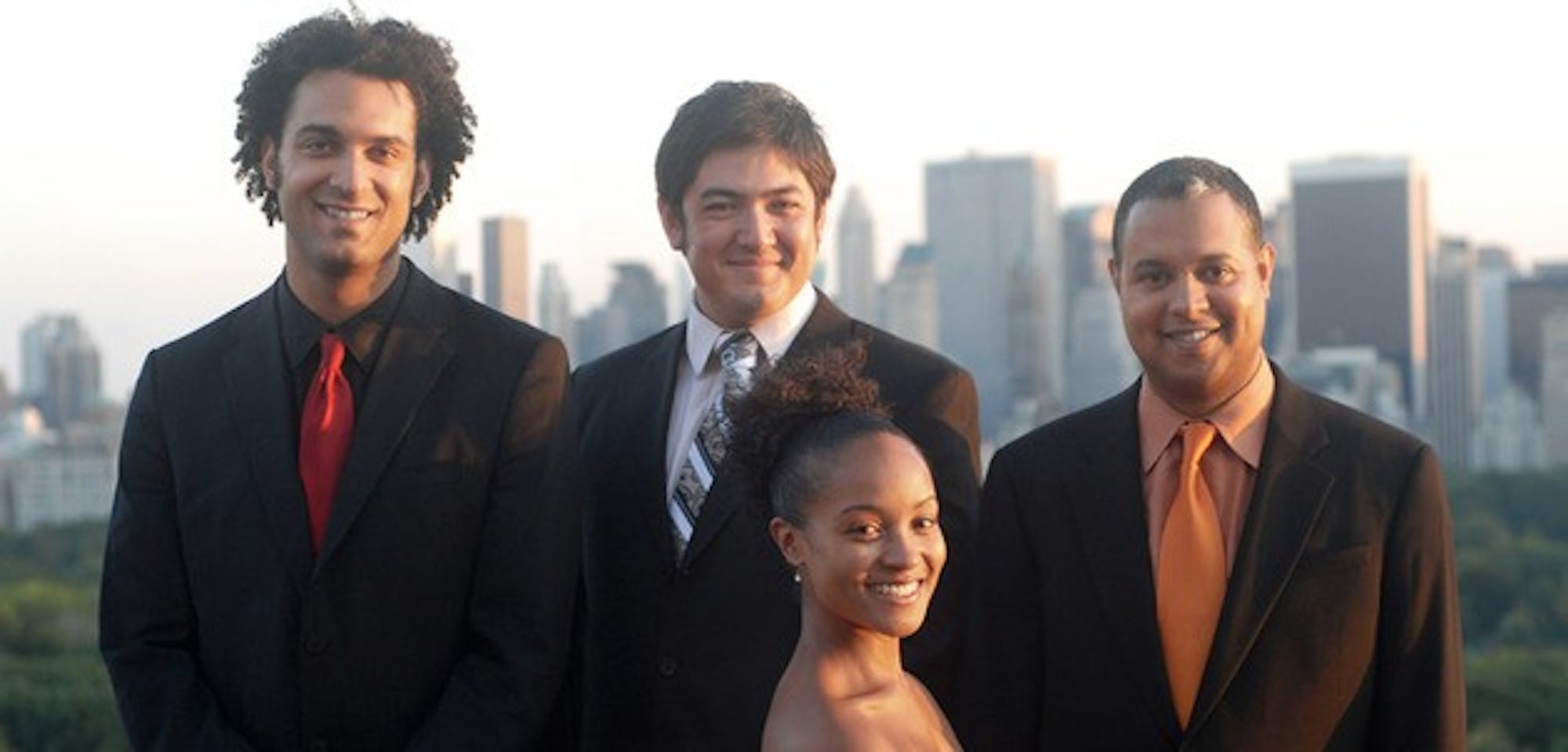The Quartet is characterized by a fusion of jazz and classical stylings, two branches of music celebrated widely by audiences and critics alike but often thought to be fundamentally disparate. Violinist Ilmar Gavilan, who has played for the Quartet for six years, acknowledges the challenge of bringing the two styles together, but he also believes that doing so makes the quartet unique.
"Not many quartets do jazz," he said. "We try to make it so every concert is half jazz, half classical style."
A native of Havana, Ilmar took up violin at the age of six and was enticed to join the Quartet because of his intense love and study of jazz and classical music, finding both to be similarly universal genres, he said.
Gavilan downplayed the perceived differences between the musical styles played by the Quartet. While jazz may be considered by some listeners to be a less formal, urban form of music incompatible with the classical style, he said that the traditions actually work well together. Gavilan referred to jazz as "the identity" of American music.
"Classical music is about pain, about fear, about sadness the same with jazz," he said. "Human feelings never get old. That way, the music is truly universal. It transcends time; it transcends culture. Classical and jazz music is forever and will always be relevant."
The violinist went on to discuss the longevity in both jazz and classical music styles in comparison to more contemporary forms of music such as rock and hip-hop. The "old age" of the musical tradition the Quartet plays in fact gives him assurance of its continued vitality, he said.
"People now will say, Oh, I love Madonna!' or, Oh, Michael Jackson is great!' and that's fine, but jazz is bigger than that," he said. "You can't ignore its importance in America's history."
Gavilan said that aside from the human element that makes the two styles of music appealing, the spectrum of both classical and jazz music have yet to be fully exhausted by past and present artists. The Quartet's unconventional, string-based take on jazz, for instance, is an innovative approach to an old form of music. As a hybrid musical outfit, the group takes on the challenge of keeping the spirit of improvisation alive while also retaining the structures of classical style to create the desired balance. The Quartet's pursuit of innovation explains the naturalness of their collaboration with the Corea and Burton duo, as both musicians are among the most distinct and original artists working in music today.
Touring with Corea is the realization of a dream for Gavilan, who said he ranks Corea and Ludwig van Beethoven among his top musical idols. Both Corea and Burton bring decades of experience and boast careers that have taken them to heights of fame rarely reached by other jazz musicians, presenting each member of the Quartet a valuable opportunity to learn from and play with living legends in the jazz world.
The concert will be held tonight in Spaulding Auditorium at 7 p.m.




